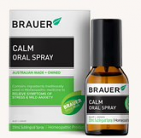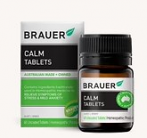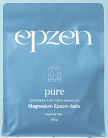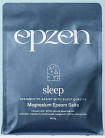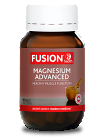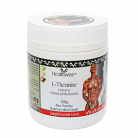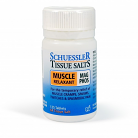Anxiety
By: Linda Brown.
Anxiety– treating mood blocks to Happiness
Happiness is a combination of pleasure, fulfillment and meaning; and distinctly: freedom from anxiety and depression.
Up to 1 in 3 of us will experience a mood disorder at least once during our lives: anxiety affecting around 25% of us. For many, anxiety is short-lived and easily overcome, for others it is a challenge that requires long-term treatment to be able to move through daily life.
It is generally accepted that anxiety is mediated by an imbalance of chemicals in the brain (neurotransmitters), such as serotonin, dopamine, endorphins, acetylcholine and GABA. Orthodox treatment of anxiety is generally aimed at modulating (changing and balancing) these pathways.
Various factors, both physical and emotional – cause these imbalances, including:
- Traumatic early life experiences (often subtle in functional families)
- Role modelling an anxious parent
- Life situations that cause stress (social or financial problems)
- Unhelpful thinking patterns and schemas
- Sleep deprivation and low melatonin
- Blood sugar imbalances, mainly hypoglycemia
- Stimulant or drug use (including alcohol, caffeine and marijuana)
- Food allergies and intolerances (salicylates, amines, MSG, sulphites, additives, wheat, gluten and dairy being the most common)
- Over or under-active thyroid
- Testosterone dominance or deficiency
- Oestrogen dominance or deficiency
- Nutritional deficiency (particularly omega 3 essential fatty acids)
- Adrenal fatigue
- Insufficient methylation
- Excess histamine
- Pyrroluria
- Porphyria
- Infections, including glandular fever viruses, yeast overgrowth and parasites
- Inflammation
- Toxicity (chemicals, heavy metals)
- Lack of exercise
- Lack of dietary protein
- Genetic susceptibility
Most people experience a combination of these factors. The best recommendation is to consult a practitioner who can identify the individual contributing factors so that you can apply accurate solutions.
However, it may be helpful to try basic self-support.
- Eat enough protein. Aim for a palm size of protein at each meal (meat, fish, fowl, legumes, tofu or eggs), or supplement with a protein shake.
- Eat low glycaemic carbohydrates, such as sweet potato, basmati rice, apples and wholegrain breads and crackers. Small amounts with 1-2 meals per day can help to release serotonin and keep blood sugar balanced.
- Cut out sugar, caffeine, alcohol, and other drugs that are not prescribed by a medical doctor. Some people require a supported withdrawal process.
- Hydrate – with water and herbal teas. Ditch the stimulants and sugar.
- Exercise regularly – every day is ideal.
- Take omega 3 fish oil (if not allergic). This is required for nerve structures and neurotransmitter balance, and almost everyone requires supplementation for optimal neural function and mood.
- Counselling. Talking not only helps you to vent confidentially, but it is an opportunity to identify issues and gain skills to resolve them. You can improve your coping skills for example with cognitive behavioural therapy, through a counsellor or with a good guide like Change Your Thinking, by Sarah Engelmann.
- Consult your complementary practitioner for evidence based solutions such as:
- Nutritional supplements of Magnesium, Calcium, Zinc, Taurine and B complex. Magnesium powders contain many of these nutrients in one formula, and at adequate doses.
- Relaxing herbs such as Passionflower, Skullcap, Kava or St John’s wort
- Zinc tally and supplementation
- Nervine herbs such as St John’s wort, Oats, Damiana, Lavender, Vervain
- Adrenal support adaptogens such as Withania, Licorice and Siberian Ginseng
- 5-Hydroxy Tryptophan (precursor to serotonin)
- Dietary planning and detection of food allergy/sensitivities
- Referrals and testing for hormonal and other imbalances
- Massage
- Acupuncture
If the feelings run deeper, they may be linked to trauma and loss, which can shape our conditioned patterns and core beliefs (schemas) about the world. Addressing core beliefs helps to remove the emotional reactivity in trigger situations, and can have a longer and more permanent affect in relieving anxiety.
Updates - 24 October 2014
Menary, K et al (2011), ‘The prevalence and clinical implications of self-medication among individuals with anxiety disorders’, Journal of Anxiety Disorders, Volume 25, Issue 3, pp: 335-339.
Those with high levels of anxiety are more likely to self-medicate with alcohol, which can lead to dependence. If you feel like your drinking or your anxiety is a problem, contact a Health Professional for help.
Vive Health Naturopaths recommend the following products for Anxiety:
| Products | Suggested Dosage |
| 1. Herbs of Gold Extra Strength St John’s Wort 3600 (30Tabs, 60Tabs) | 2 tabs 1 - 2 times daily. |
| 2. Bach Rescue Remedy (10ml, 20ml) | 7 drops in water or under tongue (as required). |
| 3. Herbs of Gold Muscle Resuscitation (150g, 300g) | 1 tsp x 2 daily after meals. |
| 4. Brauer Nervatona Calm | 10mls 2 - 3 times daily 1/2 hr away from food and toothpaste. No coffee to be drunk whilst taking this product. |
| 6. Magnesium Soak | 1 - 1.5 cups for each bath 2 - 3 times per week. |
| 7. Eco. Aroma Ylang Ylang Pure Essential Oil (10ml) | Added to massage oil or oil burner. |
| 8. Riddells Creek Relaxing Massage Oil (200mls) | Massage twice weekly. |
NOTE: Consideration should always be given to individual requirements. Please consider seeing a qualified practitioner before commencing a new treatment protocol or when combining supplements with pharmaceutical medication.



